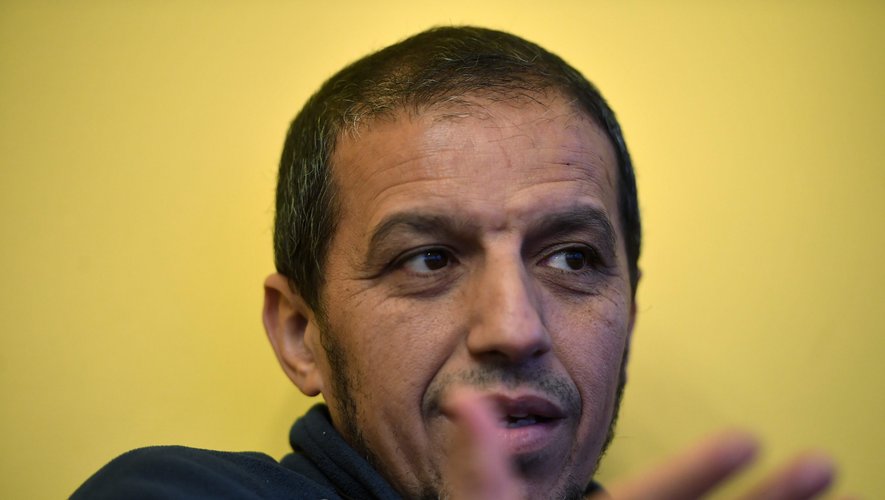The United States’ withdrawal from Syria, which should be effective in the next few months, has caused a major change in French government policy towards the French jihadists in captivity. Initiated in December 2018 by Donald Trump, the departure of the 2000 American soldiers in Syria constitutes a turning point in the geopolitical context of the region. In Europe, this announcement has been received with scepticism and has immediately raised concerns about the situation of the foreign jihadists involved in the area. Kurdish forces in the region are said to hold approximately 1000 foreign fighters, awaiting trial by the local authorities. However, the USA’s disengagement leaves the situation open to the possibility of a Turkish attack against the Kurds, and the dispersal or expulsion of the jihadists, who may become untraceable. Consequently, the French government has announced that many possible scenarios are currently been considered, including the possibility of repatriation of the French jihadists. Such a possibility has created strong debates in France, both ideological and practical, in terms of the capacity of France to judge and incarcerate the perpetrators. In the following paragraphs, the main issues of this sensitive situation, the volatility of which requires extreme caution, will be explored.
Repatriating French jihadists to keep them under control
Originally, France was in favour of letting the French jihadists – estimated at 130 (among a total of 1000 foreign fighters) – be judged in the countries where they were active. The minister of defence, Jean-Yves Le Drian, has clearly expressed the French position: “those who committed crimes might be judged where they committed it”. In this way, France recognizes local authorities as competent to deal with this question and wants French jihadists to serve their sentences in the territory where they fought. Only an exemption has been made in the case of minors, which has been controversial; France agreed to let the parents be judged abroad, but the possibility of repatriation with the mothers’ approval has been advanced for the children in recent weeks. According to the Minister of Justice, Nicole Belloudet, 75% of those classified as jihadists were children under seven years old.
However, the withdrawal of the USA has reshuffled the cards in the region and changed the French attitude on this issue, as this might heighten the risk of a dispersion of French jihadists. There is no longer a guarantee that jihadists will be kept in detention awaiting trial. Directly threatened by Turkey, the Kurds might not play their role of containment any longer and power relations in the field may change. In such a volatile environment, prisoners could become a currency of exchange in the geopolitical game between the Kurds, Turkey, the Damascus regime and other foreign powers including France. More broadly, benefiting from this disorder, French jihadists could disappear under the radar and continue to cause problems later on, while the confused situation in Syria does not guarantee the possibility of a judicial judgement for the prisoners. To prevent such possibilities, France might choose – or be forced– to repatriate French jihadists. If such a scenario occurs, the jihadists would be, upon their arrival in the country, held in detention awaiting trial.
Judicial and administrative apparatus: structural and ideological debates
This case is complicated and sensitive for Paris, in a context where French public mood has darkened in the shadow of recent terror attacks. The possible return of jihadists to home soil has provoked animated debate and questions regarding the treatment they should receive. According to French authorities, more than 1700 nationals have joined conflict zones since 2014, while almost 300 are already incarcerated in France.
Such an option has been highly discussed and criticized, and has divided public opinion. Members of the opposition claim that jihadists should be abandoned where they are and stripped of their French citizenship, given that through their past actions and choices they have expressly renounced their national allegiance. One deputy even suggested the possibility of their “targeted eliminations”.
For his part, Christophe Castaner, the Interior Minister, has declared that if jihadists are repatriated, they would have to face justice. At the moment, it is quite difficult to know under which charge they would be prosecuted, but it will most likely be for “criminal conspiracy in connection with a terrorist enterprise”, which would mean 30 years of detention. However, some voices such as the International Federation of Human Rights [La Fédération internationale des droits de l’homme(FIDH)] have called for a judgement of crimes against humanity – unprecedented in France – for the leaders and organizers of the attacks on French soil. Such a request raises the question whether jihadists should be judged on a “case-by-case” basis or collectively. Either way, this represents a huge challenge for the judicial authorities as it would be very complicated to obtain and collect information on actions committed abroad.
Another issue deals with the practical aspect of incarceration, as the French penitentiary system already appears overworked or at least untrained for this task. Apparently, the first aim of penitential authorities will be to identify the strongest adherents or conversely, most impressionable, to dispatch prisoners in different units, either in ordinary detention or in special “counter radicalization” conditions. Due to the influence and danger of these persons, their cohabitation with other prisoners is feared: prison is considered by some politicians as a way to propagate radical ideologies rather than as a way to contain it. Moreover, imprisonment in France will necessary lead to potential issues of the release – and “reintegration”- of former captives in subsequent decades and the capacity of French authorities and society to deal with these themes. As a poignant example, the father of a victim of a terrorist attack in 2012, published an online letter addressed to French President Emmanuel Macron, to urge him not to repatriate jihadists.
Finally, there is the question of what happens to the children, who represent 90 of the potential 130-repatriate jihadists. France claims to assume a duty of care towards these children- expressed before the announcement of the potential return of jihadists. Nevertheless, most of the children have already experienced horrific circumstances, which questions the possibility of their reintegration and undermines the ability of social services to deal with such cases. Once again, this issue crystalizes the main trends and dilemmas previously portrayed as it emerges as a mixture of structural problems and ideologies.
Sources
https://www.theguardian.com/world/2019/jan/31/france-prepares-return-isis-jihadis-us-withdraw






